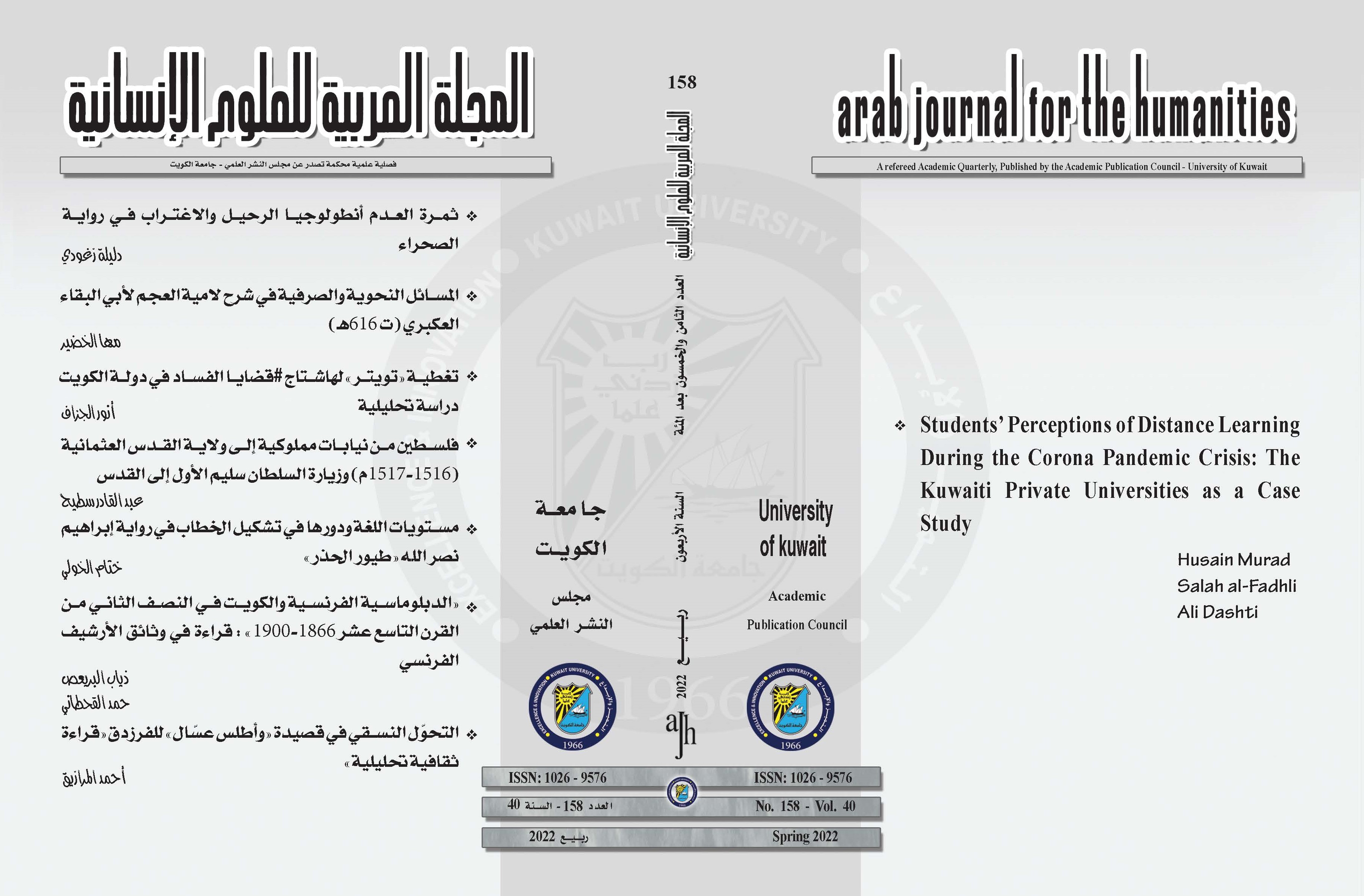The Fruit of Nothingness the Anthology of Departure and Alienation in Al-Sahraa’ (The Desert) Novel.
Mots-clés :
Ontology, truffles, sin, desert, paradise, purification, death, salvationRésumé
Truffles are born suddenly when transient rain in autumn falls in the thirsty desert. It’s a seedless fruit that grows without roots. When it dies, it leaves no seeds and no effects. In his works, Ibrahim Al-Koni devotes a well-known space for this and he ponders on this challenging miracle, after having made it the center of his big philosophical and ontological questions. This article attempts to trace the ontological turning points traversed by the path of the truffle fruit through a set of Al-Koni’s novels, and what its confusing history suggests as evidence of the mysterious existential situation after he compares it to the spectral existence of man, and after he gives the desert nomad as a model example. So, what is the ontological situation revealed by the aesthetic investment of truffles in Ibrahim Al- Koni’s narrative works? How did he take advantage of the life cycle of this strange desert truffle in drawing the ontological line of man in this universe? The present study adopts multiple methodologies of investigation as dictated by the nature of Al- Koni's texts. Such texts are intersections between religion and mythology; they strengthen the relationship between sociology and anthropology; they roam the corridors of psychology, and echo the folkloric legacy of the Touaregs. Truffles were planted at their junction points, and - in their intersections - the larger ontological question of survival and annihilation has been raised. Thus, adopting a single specific approach impossible, and it is rather knowledge that has been invested in the analysis, which shaped out the mythological approach, and which has appropriated the largest share of it, in line with the requirements of the texts.
This methodological admixture made it possible to touch upon what lies behind the obscurity of the ambiguity that Al-Sahraa’ novel - according to Ibrahim Al-Koni - tries to result in a fictional experiment that goes beyond the classics of the modern novel, and which denies the human deity on which it is based. This enables nature to restore its authority that has been robbed by modernism, and selects from its assets water, stones, and the truffles to make out of them heroes of his narrative epics. It is a kind of lifting to the religious and mythical affairs that are central to modern novel, and to what the anthropological legacy of unknown peoples such as the Touaregs overlooked by civilization and what modern civilization has ignored from the hymns of nomadism and human instinct. Ibrahim Al-Koni epitomizes them in the life cycle of truffles, and tries through them to present his vision on the existence of the being in this world and what such an existence means.
















